Giuseppe Lugo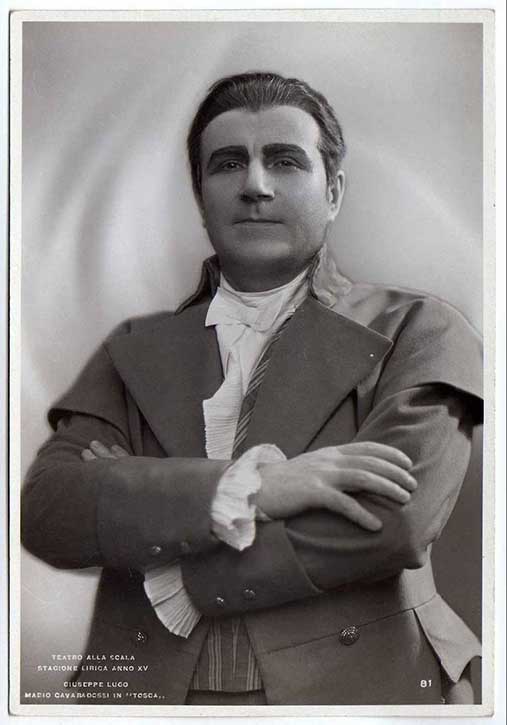
|
Giuseppe Lugo
|
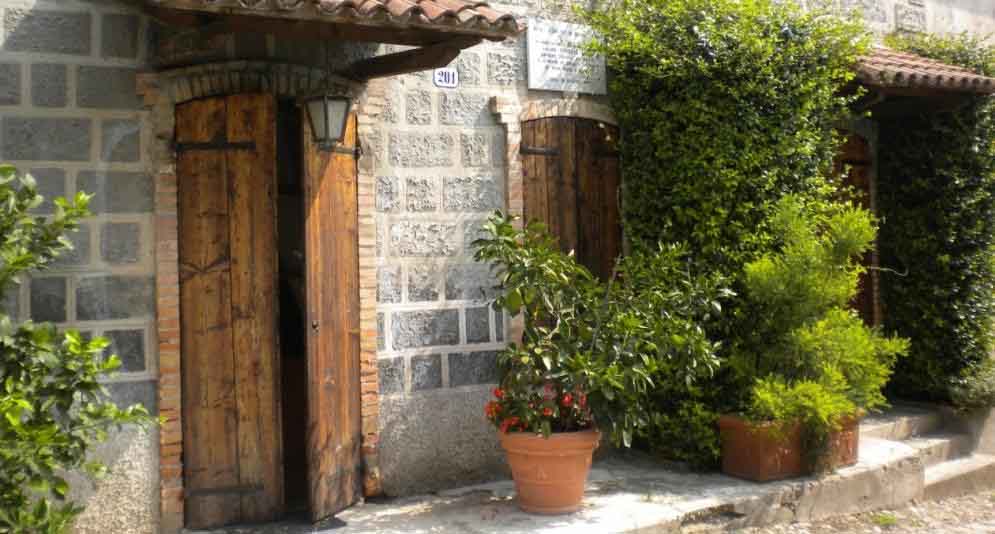
|
As a very young man, Lugo fought in the First World War, on the Piave and near Asiago. At 24 years old, he emigrated to Charleroi in
Belgium, where he found work first at a sawmill, then at a brick factory.
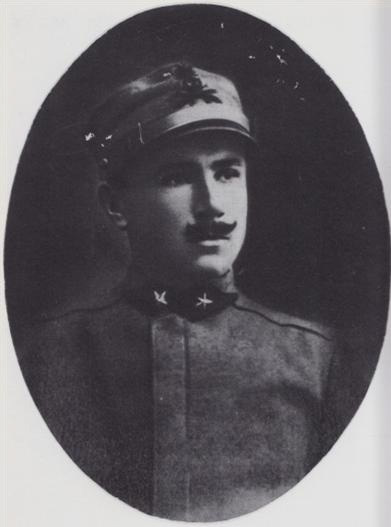
In his leisure time, he studied singing with a local choir director, Léon Gaudier. When he became homesick, he returned to Italy, and tried to enter the Milan Conservatory, but was already too old to be accepted. So he took private lessons with Raffaele Tenaglia. After about three years, he was almost 30 years old, without a profession and without a dime, so he returned to Charleroi for work, and continued his studies there with maestro Gaudier. In May 1931, nearly 32 years old, Lugo won a singing competition in Roubaix (France), and on October 6th of the same year, he made his debut at the Opéra-Comique in Paris, as Cavaradossi. He would stay at that theater until 1936: the best years of his career. In those years, he also sang as a guest all over France, as well as in Brussels, Amsterdam and Geneva. On June 30th, 1934, he married Suzanne, the daughter of his singing teacher Gaudier.
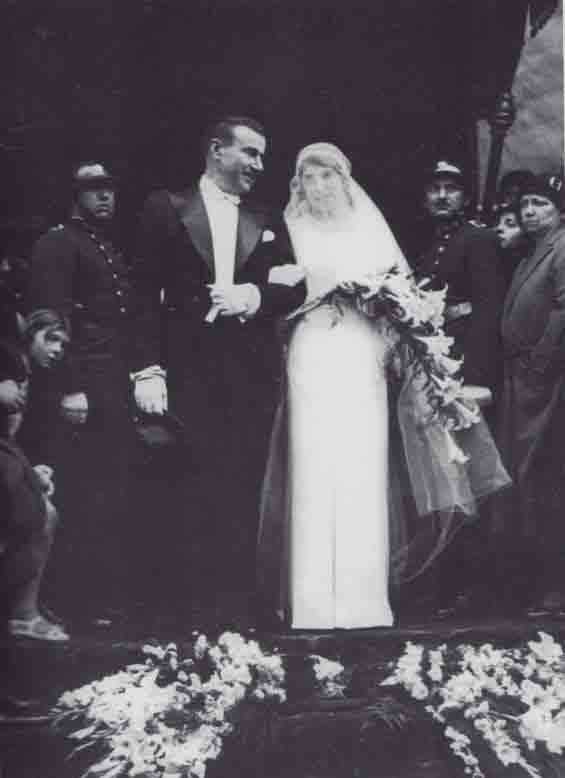 On May 26th, 1936, he made his debut at Covent Garden in London, as Cavaradossi (his most famous role) with Gina Cigna. In the same role, he conquered La Scala on January 20th, 1937 (with Maria Caniglia), and that same year, he sang at many principal theaters throughout Italy, not least at the Arena di Verona for the first time (again in Tosca, again with Gina Cigna, and with Mario Basiola under the baton of Vittorio Gui). He'd return to the Arena in 1938 for Bohème and in 1939 for Rigoletto (with Margherita Carosio and Carlo Tagliabue), where he scored a particularly great success. He returned to La Scala for the winter 1937/38 season, in Bohème, Mefistofele, Madama Butterfly and Pêcheurs de perles, and in early 1939 for Bohème (with Mafalda Favero) and Turandot (with Cigna). |
|
|
From 1942, his career petered out. His very last appearance was in Tosca (of course) on November 21st, 1947, in Liège. Apart from the operatic stage, he made five films, the first three of which made him extraordinarily famous, not only in Italy. He spent the first years of his retirement at his "Villa Vento" in Custoza (just over the hill from where he had been born), establishing a restaurant there in 1960. In 1970, he moved to Milano, where he'd stay until his death. |
|
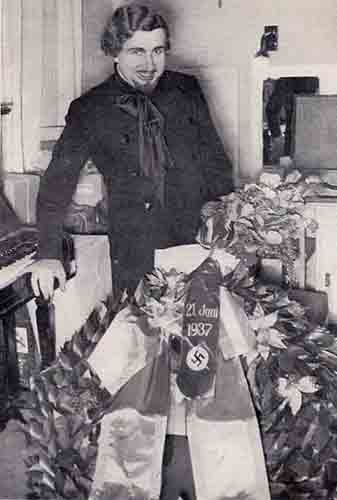
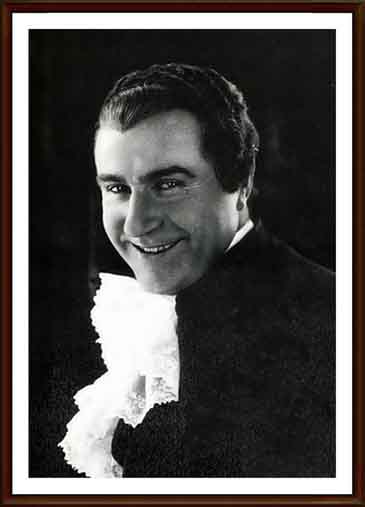
I would like to thank Thomas Silverbörg for the recordings.
Tosca – Paris, Opéra-Comique, 6 October 1931 La bohème – Paris, Opéra-Comique, November 1931 Les pêcheurs de perles – Paris, Opéra-Comique, 18 March 1932 Rigoletto – Paris, Opéra-Comique, 11 June1932 Madama Butterfly – Paris, Opéra-Comique, 9 September 1933 Faust – Charleroi, Théâtre des Variétés, 30 April 1934 Werther – Paris, Opéra-Comique, 25 October 1934 Manon – Paris, Opéra-Comique, 26 October 1935 Mefistofele – Bologna, Teatro Comunale, 6 November 1937 Turandot – Milano, Scala, 28 January 1939 La fanciulla del West – Trieste, Teatro Verdi, 10 February 1940
Regia: Guido Brignone – Giuseppe Lugo, Laura Nucci, Dria Paola, Pina Renzi, Ugo Ceseri, Guglielmo Sinaz.
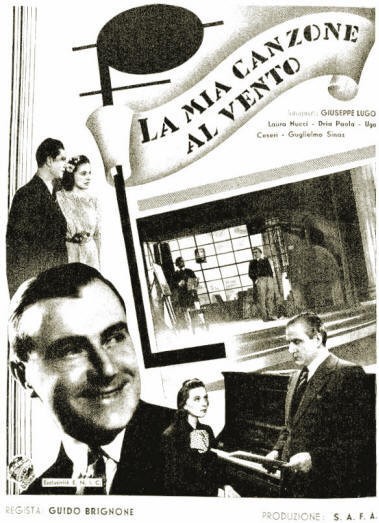 CANTATE CON ME - 1940 Regia: Guido Brignone – Giuseppe Lugo, Laura Nucci, Ruby D'Alma, Ugo Ceseri, Guglielmo Sinaz.
|
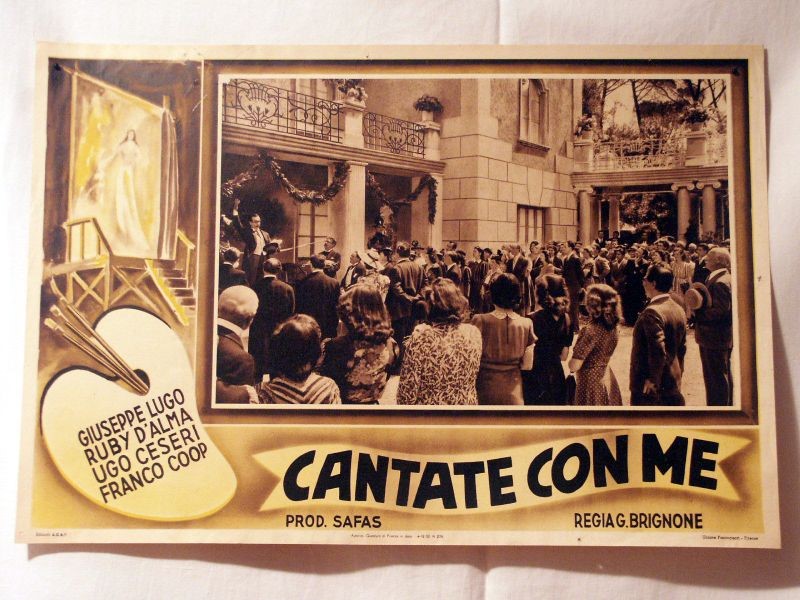 |
|
MILIARDI, CHE FOLLIA - 1942 Regia: Guido Brignone – Giuseppe Lugo, Ria Teresa
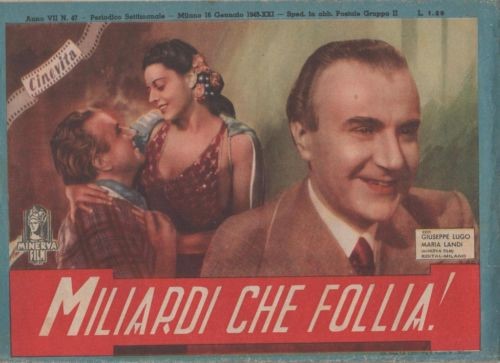 SENZA UNA DONNA - 1943 Regia: Alfredo Guarini – Giuseppe Lugo, Carlo Campanini, Silvana Jachino, Guglielmo Barnabò, Umberto Melnati.
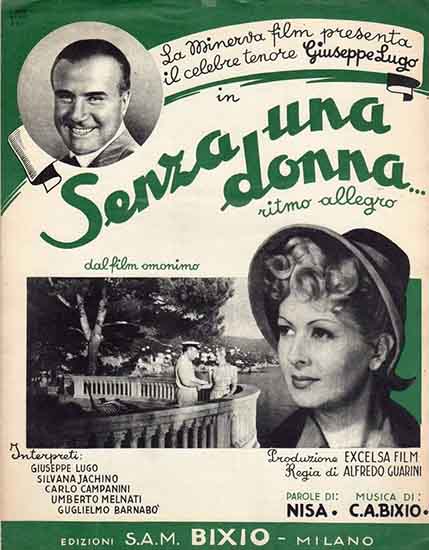 IL TIRANNO DEL GARDA - 1954 Regia: Ignazio Ferronetti – Elio Steiner, Irene Genna, Giuseppe Lugo, Alberto Sorrentino.
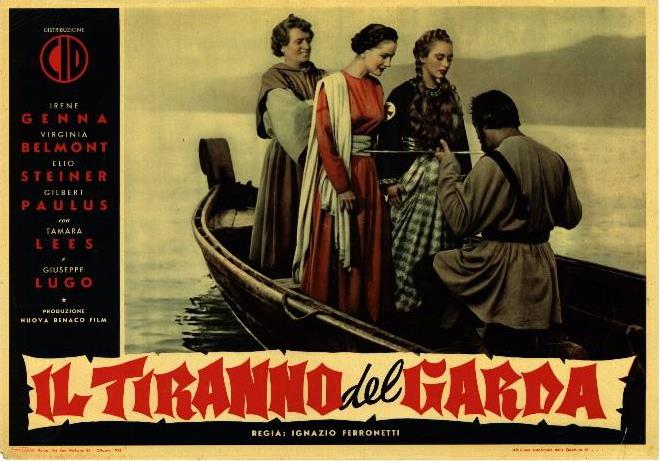 Musical numbers in the film soundtracks: La bohème (Puccini): Nei cieli bigi (w Gobbi) La bohème (Puccini): Che gelida manina La bohème (Puccini): Dammi il braccio, mia piccina (w ?) Luisa Miller (Verdi): Quando le sere al placido Rigoletto (Verdi): La donna è mobile Tosca (Puccini): Recondita armonia Tosca (Puccini): E lucevan le stelle La fanciulla del West (Puccini): Ch'ella mi creda Aida (Verdi): Celeste Aida Turandot (Puccini): Nessun dorma Solo tu (composer?) La Gioconda (Ponchielli): Cielo e mar Otello (Verdi): Esultate Il trovatore (Verdi): Di quella pira Canzone alla patria (composer?) Canto d'amore (composer?) Polydor, Paris 1932 2146BMP Pêcheurs de perles (Bizet): Je crois entendre encore 566139, 67126, Decca CA8158, Fonit 91044 2147BMP Bohème (Puccini): Que cette main est froide 566139, 67126, Decca CA8158, Fonit 91044 Polydor, Paris 1933 6063½BKP Tosca (Puccini): O de beautés égales 561086 6064½BKP Werther (Massenet): Pourquoi me réveiller 561086 6065BKP Pagliacci (Leoncavallo): Me grimer 561087, 90233, 62764, Decca DE7023 6067BKP Tosca (Puccini): O douces mains 561087, 90233, 62764, Decca DE7023 6068BKP Cavalleria rusticana (Mascagni): O Lola, blanche fleur 561088 Madama Butterfly (Puccini): Adieu, séjour fleuri 561088 Polydor, Paris 1934 1400WPP Manuela (Stolz) (Film: Mon coeur t'apelle) unpubl 1400WPP d:o 522973 1401WPP Le bel amour (Stolz) (Film: Mon coeur t'apelle) unpubl 1401WPP d:o 522973 1402½WPP 'O sole mio (Di Capua) 522974 1403½WPP Mattinata (Leoncavallo) 522974 Polydor, Paris 1935 5754BDP Land des Lächelns (Lehár): Fantaisie (w Lemichel du Roi), pt 2 522834 5756BDP Land des Lächelns (Lehár): Fantaisie (w Lemichel du Roi), pt 1 522834 5792BKP Tosca (Puccini): Le ciel luisait d'étoiles 62763, 561.083 5793BKP Les pêcheurs de perles (Bizet): De mon amie 62763, 561.083 1559WPP Amore (Jamin) unpubl 1559½WPP d:o 25558 1559¾WPP d:o 524024 1562WPP Rigoletto (Verdi): Qu'une belle 561093 1561½WPP Rigoletto (Verdi): Comme la plume au vent 561093 1613WPP Jamais (Jamin) unpubl 1613½WPP d:o 25558 1613¾WPP d:o 524024 1020GPP Werther (Massenet): J'aurais sur ma poitrine unpubl 1020½GPP d:o 566171 1065GPP Manon (Massenet): Air de Saint-Sulpice 566176, Decca CA8224 1066GPP Hérodiade (Massenet): Air de Jean 566176 Decca CA8224 1067GPP Werther (Massenet): Ô nature 566171 2108HPP Manon (Massenet): Rêve de Des Grieux unpubl 2108½HPP d:o unpubl 2108¾HPP d:o 561099 2109HPP Werther (Massenet): Lorsque l'enfant revient d'un voyage 561099 Polydor, Paris 1936 2921½ Faust (Gounod): Salut, ô mon dernier matin 561106, Vox16078 2922½ Lakmé (Delibes): Fantaisie aus divins mensonges 561106, Vox16078 2923½HPP Faust (Gounod): Salut demeure, pt 1 561105 2924HPP Faust (Gounod): Salut demeure, pt 2 561105 2925½ Catarì, Catarì (Cardillo) 524250 2926HPP Sérénade (Toselli) unpubl 2926½HPP d:o unpubl 2926¾HPP d:o 524252 2927HPP Il est un doux pays (Nutile) 524252 2928HPP Santa Lucia luntana (Mario) 524250 2929HPP Torna a Surriento (De Curtis) 524251 2930HPP Maria, Marì (Di Capua) 524251 HMV, Paris 1939-06-07 0LA3102-1 Tosca (Puccini): E lucevan le stelle DA4921, Vic 2143 0LA3103-1 Tosca (Puccini): Recondita armonia unpubl 0LA3103-2 d:o DA4921, Vic 2143 2LA3104-1 Luisa Miller (Verdi): Quando le sere al placido DB5093 2LA3105-1 Bohème (Puccini): Che gelida manina unpubl 2LA3105-2 d:o DB5093 0LA3106-1 Tosca (Puccini): Le ciel luisait d'étoiles DA4922 0LA3107-1 Tosca (Puccini): O de beautés égales DA4922 HMV, Milano 1939-06 0B 3214-1 La mia canzone al vento (Bixio) DA1686 0B 3215-1 Cuore, diglielo anche tu (Bixio) DA1686 0B 3216-1 Dimmi che il mio amore sei tu! (Valente) DA1687 0B 3217-2 Mattinata (Leoncavallo) DA1687 HMV, Milano 1940-11 0BA4167-1 Cantate con me (Bixio) (Film: Cantate con me) unpubl 0BA4167-2 d:o unpubl 0BA4167-3 d:o DA5395 0BA4168-1 Voce di strada (Film: Cantate con me) (Bixio) unpubl 0BA4168-2 d:o unpubl 0BA4168-3 d:o unpubl 0BA4168-4 d:o DA5395 HMV, Milano 1941 0BA 4205 Serenata montana (Blanc) (Film: Addio giovinezza) DA5396 0BA 4206 Madrigale montano (Blanc) (Film: Addio giovinezza) DA5396 Cetra 1942 51747 Cavallino corri e va' (Di Lazzaro) (Film: Miliardi, che follia) AT 0121, AA307
Reference for the biography and filmography: Pietro Sandro Beato Reference for all pictures but the bottom one: Il Baco da Seta, a fantastic local newspaper for a small part of the province of Verona (fortunately the part where Lugo was born) All that was traced and prepared for this site by Christian Torrent, who compiled also the discography: thank you! |